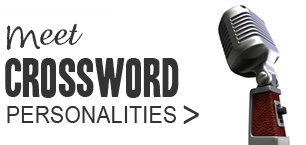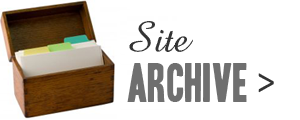Introductory Post: Interviews With Ace Solvers
Chaturvasi
 If you're a committed solver of The Hindu Crossword and have an online presence, the name of Chaturvasi would be familiar to you. Chaturvasi is the pseudonym used by the co-owner and moderator of the active Orkut community, The Hindu Crossword Solutions. Members of the now-defunct yahoogroup The Hindu Crossword would also recognize him as a prolific poster. In his non-virtual avatar, Chaturvasi is a retiree living in Madras (Chennai).
If you're a committed solver of The Hindu Crossword and have an online presence, the name of Chaturvasi would be familiar to you. Chaturvasi is the pseudonym used by the co-owner and moderator of the active Orkut community, The Hindu Crossword Solutions. Members of the now-defunct yahoogroup The Hindu Crossword would also recognize him as a prolific poster. In his non-virtual avatar, Chaturvasi is a retiree living in Madras (Chennai). He is the go-to person for any unexplained clues in the crossword, the final authority we refer to on the The Hindu Crossword community. With decades of solving experience and the ability to work out most of The Hindu Crossword without the grid, he shares with us in this interview the secret of his rare skill and valuable suggestions on how to improve your own technique.
Q1: When and how did you start solving crosswords?
Chaturvasi: Well, long, long ago, as my granddaughter starts her stories. One day in the Sixties of the last century the topic of crosswords cropped up in a conversation among a bunch of cousins and friends sitting on a 6ft by 2ft plank hanging from the ceiling of the colonnaded veranda of our palatial Madras-terraced house in Gopalapuram in what is Chennai now. The oldest among them mentioned a clue for ACID and told us how it worked. Yes, I remember even the wordplay: account I had...
This piqued my interest and I bought The Mail, an eveninger of Madras, to do the crossword every day. (The Hindu didn't have the feature in those times.)
From the word Go (this two-letter word wasn't in the grid!) I got hooked (I wasn't married then!).
Unfortunately, I could not share this hobby with that cousin of mine. He was an air force officer and soon after that visit he became a martyr in an India-Pakistan war. But, I have remembered him to this day as one who introduced me to an engaging pastime.
Q2: Which crosswords do you solve currently, how often and how do you fare with them?
Chaturvasi: Many, including some in UK papers; generally no ill-faring, usually exceedingly well, sometimes rather bad (depending upon the crossword!). I can do it at any time of the day (even in sleep) anywhere (including the small room); nearly 70 per cent of some puzzles straight off and the rest with grid entries; fifteen minutes or less for India-made crosswords or the 13x in NIE. No partner in crime; it's a one-man job.
Q3: How has the learning curve been for you?
Chaturvasi: Steep! But this depends upon the solver. If one gets four or five answers in a crossword containing some 30 clues and then abandons it, then I am afraid one's solving prowess may not see any perceptible improvement.
When I started out in the late Sixties, there were no crossword aids. My solving skill improved because of sheer persistence on my part.
When I began solving the Mail crossword (I bought the paper laying out a few paise from my pocket allowance) I used to get just half-a-dozen answers. What I used to do regularly was I looked up the published answers the next day and assiduously did dictionary work to see how they worked. Even today any solver with a good knowledge of the English language can certainly get better just this way - without any "how to" books.
I shall give an example offhand. Take the clue "The condition of the nation (5)". This is one from my very early days but I had no difficulty with that. Now, if one did not solve this and then forgot about it, how will one see improvement in the ability to crack clues? On the other hand, if the solver looks at the answer STATE the next day, he can guess that both "condition" and "nation" lead to STATE. If that justification does not dawn on him immediately, it would certainly occur to him if he takes up a dictionary, or a thesaurus, which will have STATE under the entry 'condition' or 'nation'.
Q4: What is your technique for solving the cryptic crossword?
Chaturvasi: First read the clues; then think (scratch the head, if needed). Just kidding!
One can develop one's own technique as one goes along.
Mark the word divisions by drawing thick lines on the grid. The enumeration for a clue leading to the answer PAVES THE WAY is 5,3,3. Draw lines like this _ _ _ _ _|_ _ _| _ _ _ on the grid. The moment you enter S in the fifth letter position or T or E in the second component or W or Y in the third, the answer is likely to occur to you.
If you think the required word ends in -S, or -ED or -ING or any such string, put it in and you might get the answer with one or more crossings.
Try to guess the short components in the phrasal answers. In the above example, the second one is likely to be THE or AND (in some it might be WHO or some other word but that's rare). The moment you mentally reject AND and think of THE, with S there already in, you might get PAVES THE WAY.
Suppose you find that you have ?A?E for a clue with which you're stuck, merely staring at the slot won't give you the answer. Keeping in mind the clue, do what I call a letter run. Looking at the first position in the slot, run the letters of the alphabet in your mind. ABC... and when you come to P, the word PAVE might occur to you, if that is indeed the answer. Or, if you do the letter run for the required letter in the third position, when you come to V, the answer might suggest itself.
Don't try to solve clues one by one in the order in which they are printed (even in your Std X exam, you didn’t do that, did you?) . Run your eyes along the clues and, as the answers occur to you, enter them in the grid. The crossing letters are a great help. The answer to 5ac, say, after skipping 1ac, will give you beginning letters for some Dn clues - so the game continues! Solving clues in the cold - outside of their element, viz., the grid - comes at a very advanced stage in the career of a cruciverbalist (I hate this sesquipedalian, arcanely evolved word, give me the instantly comprehensible 'crossworder'!).
For anagram clues, if you write the letters in a circle and look at them, the answer might occur to you because of the contiguity of letters in that representation. With experience, just staring at the anagram fodder will have the effect!
Even with all the technique in place, an intelligent clue can trip you up! It may take ages for you to determine which is the definition and which the wordplay. Therein lies the mystique of this everlasting two-man tussle between the setter and the slumdog (sorry, solver).
In such a case, lay aside the crossword and relax! When you wake up after a good night's rest, the answer might come to you even before you have removed the toothbrush from its holder at the sink. Smile at your image in the mirror in front of you!
You will have noted that I have avoided mentioning any word finder software. This must not be resorted to unless it is the last word in a prize crossword. After all, there can be a software that produces a crossword grid, with clues and all, and then solves the puzzle itself! Not only that, it can even flash a message of congratulation saying that the crossword has been completed!
Besides, a crossword solver is only as good as its database. Take B_U_I_. A crossword composer with a penchant (or taste) for Indian words can have BHUJIA for this pattern in the grid but no software is likely to serve up this match! The clue may be so easy that you can lap it up instantly!
Q5: Do you have a favourite crossword, compiler or clue?
Chaturvasi: No, anything is grist to the mill (I don't carry any axe to grind). No faves among clue types, either. I would look critically at every clue; in a puzzle I may clasp even a hidden clue if it's cleverly hidden.
But I can tell you that not all crossword compilers are the same!
Years ago in my enthusiasm for the pastime I bought three collections of crosswords published by a UK company. I came home and started out. A few tentative attempts and I threw the books away! The clueing technique was so bad! No UK broadsheet would have published those crosswords!
On the other hand, the UK compiler Rufus is unforgettable! Who is this? Why? You know the 13x crossword that is published in the New Indian Express? That one is composed by him, I think. I know this puzzle from the Seventies and I marvel at the continuity and fairness of the clues and the entertainment value of this crossword. Rufus is a prolific compiler and the Monday puzzle in The Guardian is his.
Q6: Any memorable crossword-related experiences that you’d like to share? Friendships forged through the shared hobby?
Chaturvasi: When I as a postgraduate student was on a visit to Jamnagar (Gujarat) for a month or so sometime in the late Sixties, I used to solve the ToI crossword every day and compare notes with Navy officers at the officers' mess in the evening. They were happy to be in conversation with a young man.
In the Seventies, I wrote to the Editor of a small-time magazine in Madras seeking the address of the writer of an article on crosswords and wrote to the lady who corresponded with me for some months. I even met her when she was on a visit to the city.
During the same period, when the Hindu was publishing crosswords every other day, I used to exchange PCs (postcards) with answers/comments with a Statistics Professor in a city college (that was before the advent of PCs and Internet in India and when speedpost was in action, not just in name).
I once appeared in a crossword show on Doordarshan - when I was on the solvers side. Later, I conducted crossword quiz shows in IIT-Madras and other city colleges when I was on the other side!
I may also mention here: don't expect every crossword solver to be as mad you are! Take my dad or my brother-in-law. I never saw them do a crossword. Yet give them a clue that has stumped you and they would give you the answer! My dad was an officer in the Air Force and in the pre-Independence era he had moved with British colleagues. A B.A. Botany graduate, his command over the English language was infinitely better than some of those M.A. English, M. Phil. graduates of today who cannot recognise a well-known line from a well-known poem but yet flaunt their certificates. Though he had never gone to the UK, he was quite familiar with its people and culture.
Q7: What are the crossword references you use?
Chaturvasi: There cannot be any better reference than the latest edition of a standard dictionary (throw away that old, tattered volume that your grandfather palmed off on you before he got a revised edition) and a thesaurus.
Q8: Please share some tips for beginners to help them improve their solving skills.
Chaturvasi: The platinum tip of a fountain pen; if the ink spreads on the newsprint, take 045 Reynolds or not-too-well-honed a pencil so the point may not make holes in the grid design.
-------
Introductory Post: Interviews With Ace Solvers
Part I: Interview With Sridhar Shenoy
Part III: Interview With Vinod Raman
Part IV: Interview With Ganesh TS
Part V: Interview With Peter Biddlecombe
Part VI: Interview With Deepak Gopinath
The next ace solver interview in the series will be published on 17th Feb 2009. If you wish to keep track of further articles on Crossword Unclued, you can subscribe to it in a reader via RSS Feed. You can also subscribe by email and have articles delivered to your inbox.








 Follow on Twitter
Follow on Twitter Join us on Facebook
Join us on Facebook Get RSS
Get RSS

1 comment
Thank you for this very interesting and enlightening interview, CVasi. Your passion for crosswords shines through in your words.
Most of my learning has been through reverse-engineering the solutions too. Interesting that you remember the first cryptic clue you heard of. I remember the first non-anagram clue that I solved: a double-definition for PRESSING. It felt like a major victory to have cracked it!
I have a slightly different way of solving anagram clues, which works for me. If I don't get it on sight, I put the consonants on one line and the vowels in another just below. The solution usually suggests itself instantly on doing that.
Post a Comment